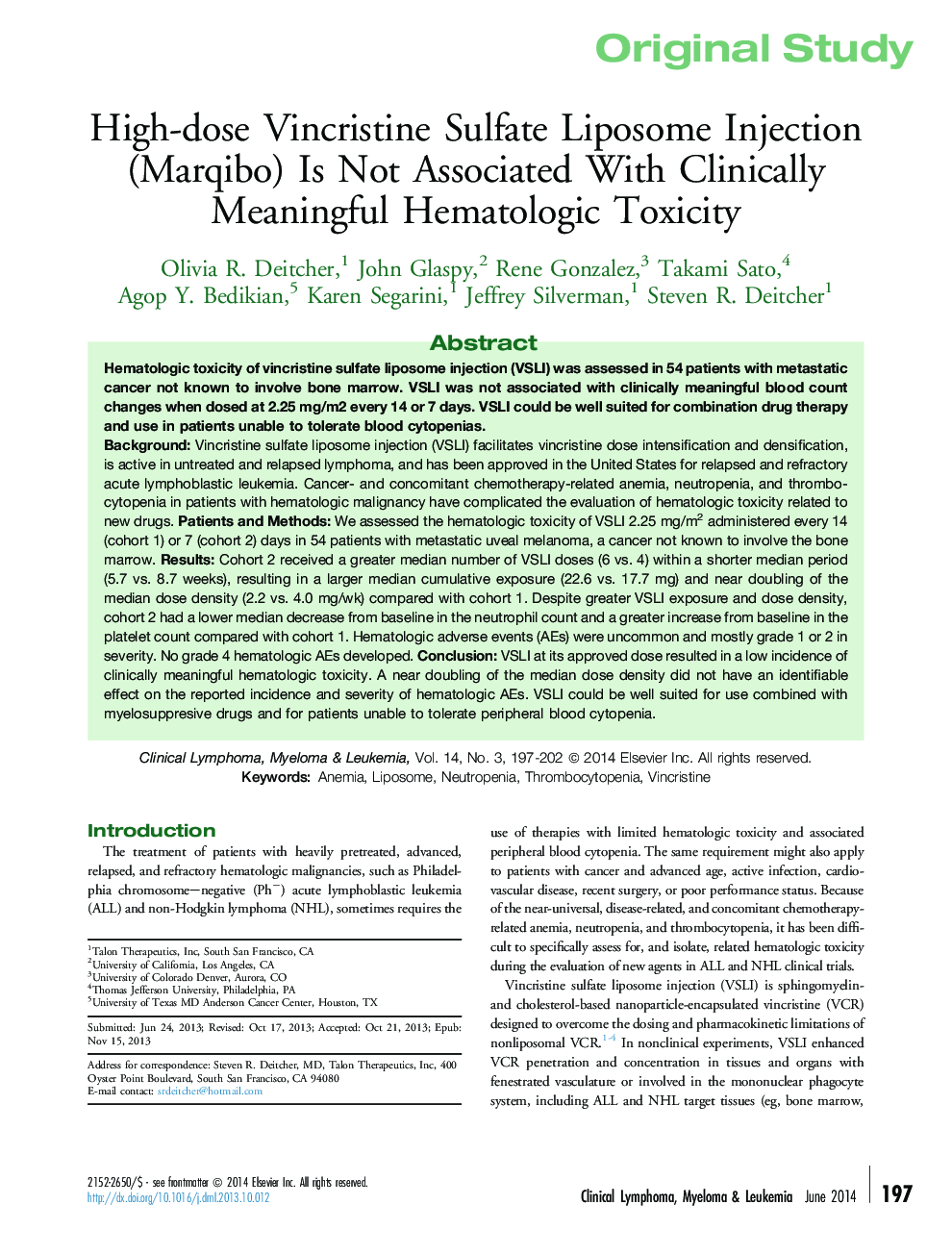| Article ID | Journal | Published Year | Pages | File Type |
|---|---|---|---|---|
| 2754938 | Clinical Lymphoma Myeloma and Leukemia | 2014 | 6 Pages |
BackgroundVincristine sulfate liposome injection (VSLI) facilitates vincristine dose intensification and densification, is active in untreated and relapsed lymphoma, and has been approved in the United States for relapsed and refractory acute lymphoblastic leukemia. Cancer- and concomitant chemotherapy-related anemia, neutropenia, and thrombocytopenia in patients with hematologic malignancy have complicated the evaluation of hematologic toxicity related to new drugs.Patients and MethodsWe assessed the hematologic toxicity of VSLI 2.25 mg/m2 administered every 14 (cohort 1) or 7 (cohort 2) days in 54 patients with metastatic uveal melanoma, a cancer not known to involve the bone marrow.ResultsCohort 2 received a greater median number of VSLI doses (6 vs. 4) within a shorter median period (5.7 vs. 8.7 weeks), resulting in a larger median cumulative exposure (22.6 vs. 17.7 mg) and near doubling of the median dose density (2.2 vs. 4.0 mg/wk) compared with cohort 1. Despite greater VSLI exposure and dose density, cohort 2 had a lower median decrease from baseline in the neutrophil count and a greater increase from baseline in the platelet count compared with cohort 1. Hematologic adverse events (AEs) were uncommon and mostly grade 1 or 2 in severity. No grade 4 hematologic AEs developed.ConclusionVSLI at its approved dose resulted in a low incidence of clinically meaningful hematologic toxicity. A near doubling of the median dose density did not have an identifiable effect on the reported incidence and severity of hematologic AEs. VSLI could be well suited for use combined with myelosuppresive drugs and for patients unable to tolerate peripheral blood cytopenia.
